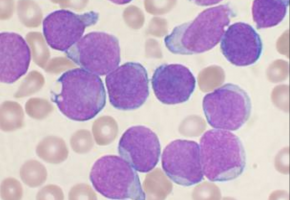
T-cell acute lymphoblastic leukaemia (T-ALL) is an aggressive cancer which is lethal to 15% of children and 50% of adult patients.
Treatments have not changed significantly for decades and there is a need for new therapeutic approaches.
Most T-ALL cases are driven by mutations in NOTCH1 or related genes.
These mutations turn on genetic programmes that make T-ALL cells multiply rapidly.
Researches used a CRISPR-Cas9-based method, screening the human genome (approximately 20,000 genes) and identifying more than 50 genes specifically required for the survival of NOTCH1-driven T-ALL cells.
The results of this study were presented at the 2019 European Hematology Association (EHA) Annual Meeting.
The gene NADK was one of the most promising of these potential therapeutic targets.
It generates NADP, which can protect cells from damaging “reactive oxygen species” (ROS).
They found that NOTCH1-driven T-ALL cells produced large amounts of these damaging oxygen compounds, and that NOTCH1 sends a separate signal to activate NADK to protect the cells from them – allowing the cells to multiply rapidly.
Inhibition of NADK strongly inhibited T-ALL cells from growing and prolonged the survival of mice with T-ALL, without causing noticeable side-effects.
The findings indicate that the development of potent inhibitors of NADK has the potential to enhance our ability to treat T-ALL more effectively, whilst reducing side-effects for patients.
Source: EHA